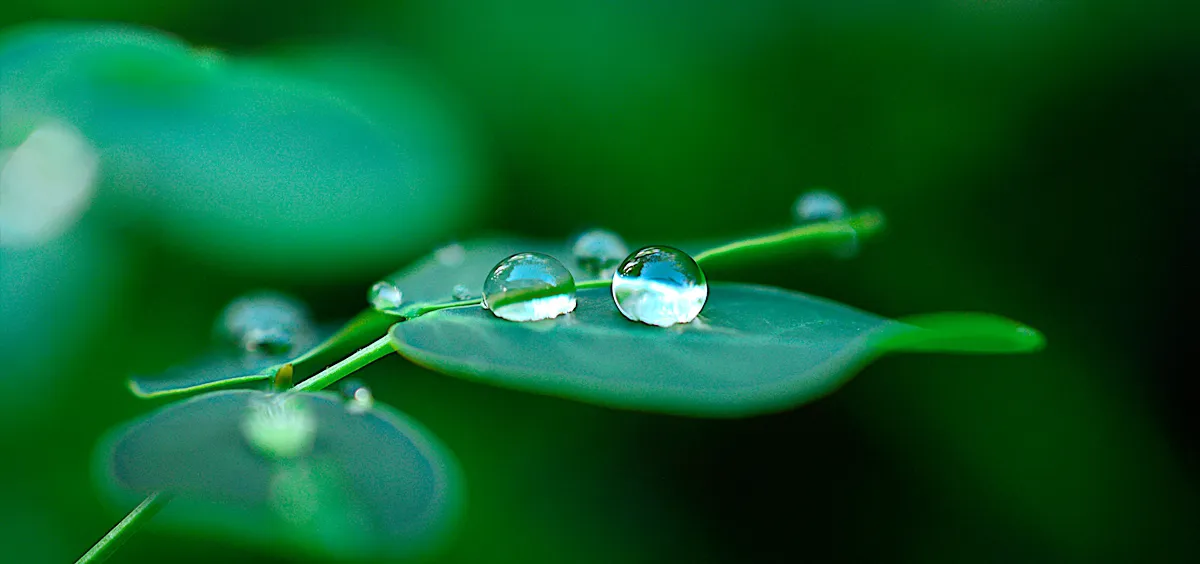Brief and wondrous idioms about dew
Choice Chengyu is a regular column, examining interesting, unique or newsworthy examples of chengyu—four-character idioms or proverbs, derived from historical and mythical events.
White Dew (白露), the 15th solar term of the year, will take place this week, marking the beginning of cooling autumn weather. During this period, declining temperatures cause vapors in the air to condense into white dew on grass and tree leaves. In Chinese literature, the transparent morning dew is an oft-used image for something beautiful yet short-lived, a symbolism invoked in many chengyu:
浮云朝露 Floating clouds and morning dew
Clouds disperse, dew evaporates—this chengyu is used to refer to something transient, often the passage of time or life:
Human life is like the floating clouds and morning dew; nothing lasts forever.
Rénshēng rú fúyún zhāolù, méiyǒu shénme shì yǒnghéng de.
人生如浮云朝露, 没有什么是永恒的。
危如朝露 Precarious as the morning dew
Since the morning dew evaporates at sunrise, this chengyu describes something fleeting, fragile, or approaching its demise. The literary expression is rarely used in daily conversation.
风餐露宿 Eat in the wind and sleep in the dew
This chengyu implies the endurance of hardships, often an arduous journey or toiling in the fields.
He ate in the wind and slept in the dew, journeying forward day and night, finally reaching his destination in time.
Tā yílù shang fēngcān lùsù, rìyè jiānchéng, zhōngyú ànshí dàodá le mùdìdì.
他一路上风餐露宿,日夜兼程,终于按时到达了目的地。
餐葩饮露 Dine on flowers and drink dew
Originally describing the lifestyle of immortals, this chengyu is often metaphor for a hermit’s seclusion.
春露秋霜 Dew in spring and frost in autumn
While spring dew typically symbolizes kindness in literature, the autumn frost is a metaphor for severity. Combined, they make an idiom that memorializes both the grace and authority of one’s ancestors.
霜露之思 Remembrance of frost and dew
Carrying on the symbolism of dew and frost from the above, this chengyu describes the remembrance of one’s late parents or ancestors.
霜露之悲 Grief of frost and dew
A variation of the chengyu above, this one replaces “remembrance” with “grief,” suggesting the somber remembrance of deceased forebears.
金风玉露 Gold wind and jade dew
In Chinese, “金风” (gold wind) usually refers to autumn wind. The scenery of autumn and jade-like dew paints the image of a beautiful yet fleeting time. In Chinese literature, this idiom often describes the brief and wondrous time that lovers spend together. As Song poet Qin Guan put it:
When Autumn’s Golden Wind embraces Dew of Jade,
All the love scenes on earth, however many, fade.
Jīnfēng yùlù yì xiāngféng, biàn shèng què rénjiān wúshù.
金风玉露一相逢,便胜却人间无数。
露水姻缘 Drewdrop romance
This derogatory idiom refers to temporary, possibly illicit relations between a man and a woman.
Theirs was just a dewdrop relationship; it meant nothing.
Tāmen nà búguò shì lùshuǐ yīnyuán, bú dàibiǎo shénme.
他们那不过是露水姻缘,不代表什么。
露水夫妻 Dewdrop couple
Accordingly, a “dew husband and wife” are not a legal couple, but illicit lovers.












